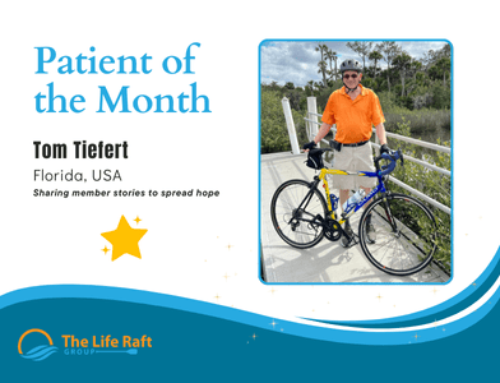Overcoming an Obstacle that Comes with Regular Cancer Care
By Belinda Gist, LRG Contributor
Living with cancer is not easy but getting back and forth to your medical appointments should be. However, this is not always the case. In general, transportation issues are a major contributor to missed medical appointments in the US. Over 3.6 million people miss their medical appointments each year, preventing them from getting the care that they need or getting access to the medicine that could help them. People report that distance to the doctor’s office, cost of the transportation, and access to a driver or public transportation as the main reasons that they are having a challenge with transport.
This is especially true for patients with a rare cancer like GIST. It is important for anyone with a rare disease to see a physician who has experience with and who treats many patients with a similar diagnosis. Often, these experts only work in centers of excellence, academic medical centers located in large cities. This leaves the patient with a significant transportation challenge.
 GIST patients are not only challenged with transportation to see a GIST specialist, but also require regularly scheduled scans to assure that their treatments are working. Just as with the general population, people living with cancer regularly report that getting a ride back and forth to their treatment is a significant barrier to receiving care, leading them to delay or discontinue their therapy. “I couldn’t find a ride,” “I didn’t have money to pay for cab fare,” or “My daughter just can’t take any more time off work to bring me back and forth” are commonly heard.
GIST patients are not only challenged with transportation to see a GIST specialist, but also require regularly scheduled scans to assure that their treatments are working. Just as with the general population, people living with cancer regularly report that getting a ride back and forth to their treatment is a significant barrier to receiving care, leading them to delay or discontinue their therapy. “I couldn’t find a ride,” “I didn’t have money to pay for cab fare,” or “My daughter just can’t take any more time off work to bring me back and forth” are commonly heard.
The good news is that there are several programs available to provide support to people during their therapy. A central point for transportation resources is the American Cancer Society Road to Recovery Program, which offers a directory of available options, sorted by city.
The ACS Road to Recovery program partners with municipalities, faith-based organizations, and a network of volunteer drivers to provide the much-needed rides back and forth to appointments. More information on the program is available at https://www.cancer.org/treatment/support-programs-and-services.html or by calling 1-800-227-2345.
Uber Health is a new option for patients and caregivers. Launched in the spring of 2018, Uber Health is an extension of the Uber ride-sharing platform for patients and caregivers.
Differing from traditional Uber rides, Uber Health rides are managed through the health care provider. The doctor’s office has an account with Uber Health, and they can schedule rides up to 30 days in advance of an appointment, allowing for simple access to a ride when it is needed. Multiple visits can be scheduled at once, making it easier to take care of a series of treatments or follow-up visits and eliminating the stress of finding a ride for every appointment individually. From the patient perspective, using Uber Health does not require a smart phone, unlike the standard Uber app-based service. Scheduling and arrangements can be made through text messages and traditional phone calls. Rides from Uber Health can be submitted to the health insurance provider and there are no increased costs over standard Uber rides associated with using this more personalized service.
Lyft Concierge offers a similar platform to Uber Health, also providing transport coordinated through the doctor’s office. As with Uber, the Lyft rides can be paid for by a patient’s health insurance provider, including Medicare and Medicaid in some cases.
Chemo Cars, available in Charlotte, NC and Amarillo, TX with plans to expand, has provided over 12,000 free rides since its inception in 2017. Founded by Zach Bolster after witnessing his mother’s struggle with pancreatic cancer, Chemo Cars is a non-profit organization that partners directly with Uber and Lyft to provide free transport to and from medical visits. The cost of the rides is provided by donations to Chemo Cars, requested at $12 per donor to pay for one ride. https://chemocars.org/about/faq/
More information about patient transportation assistance can be found here:https://liferaftgroup.org/financial-aid/



